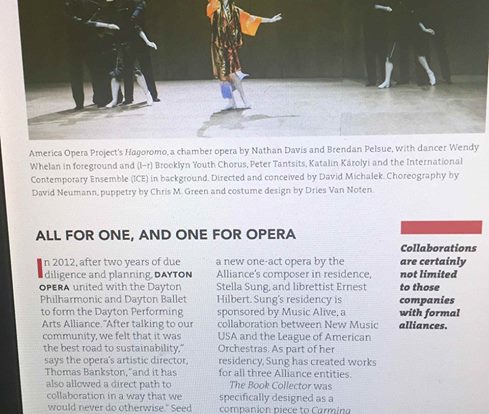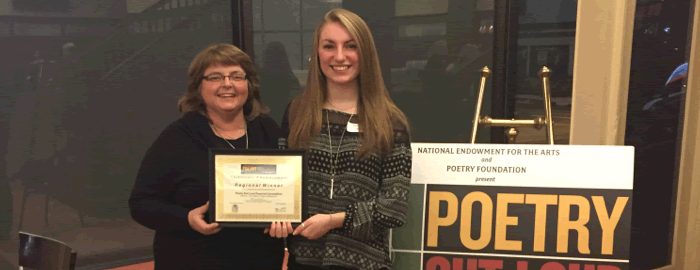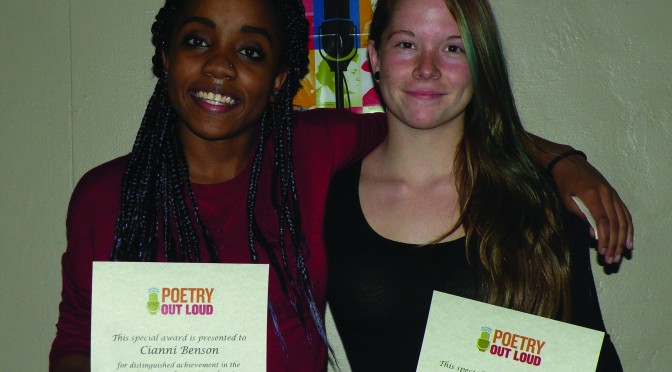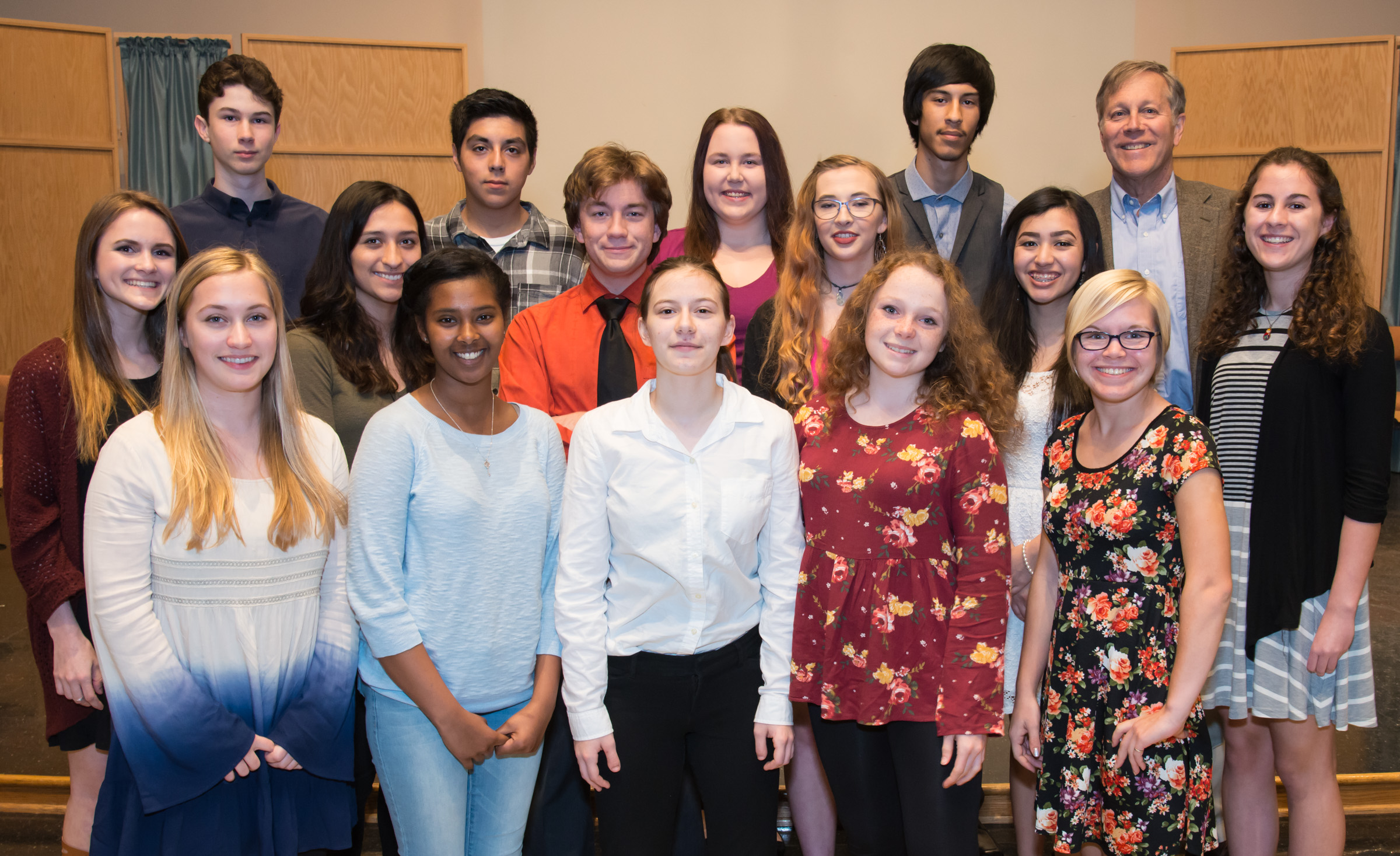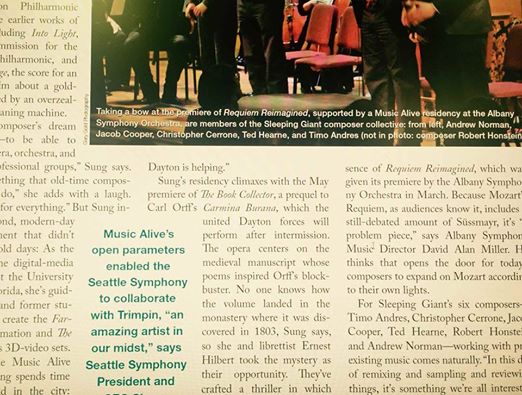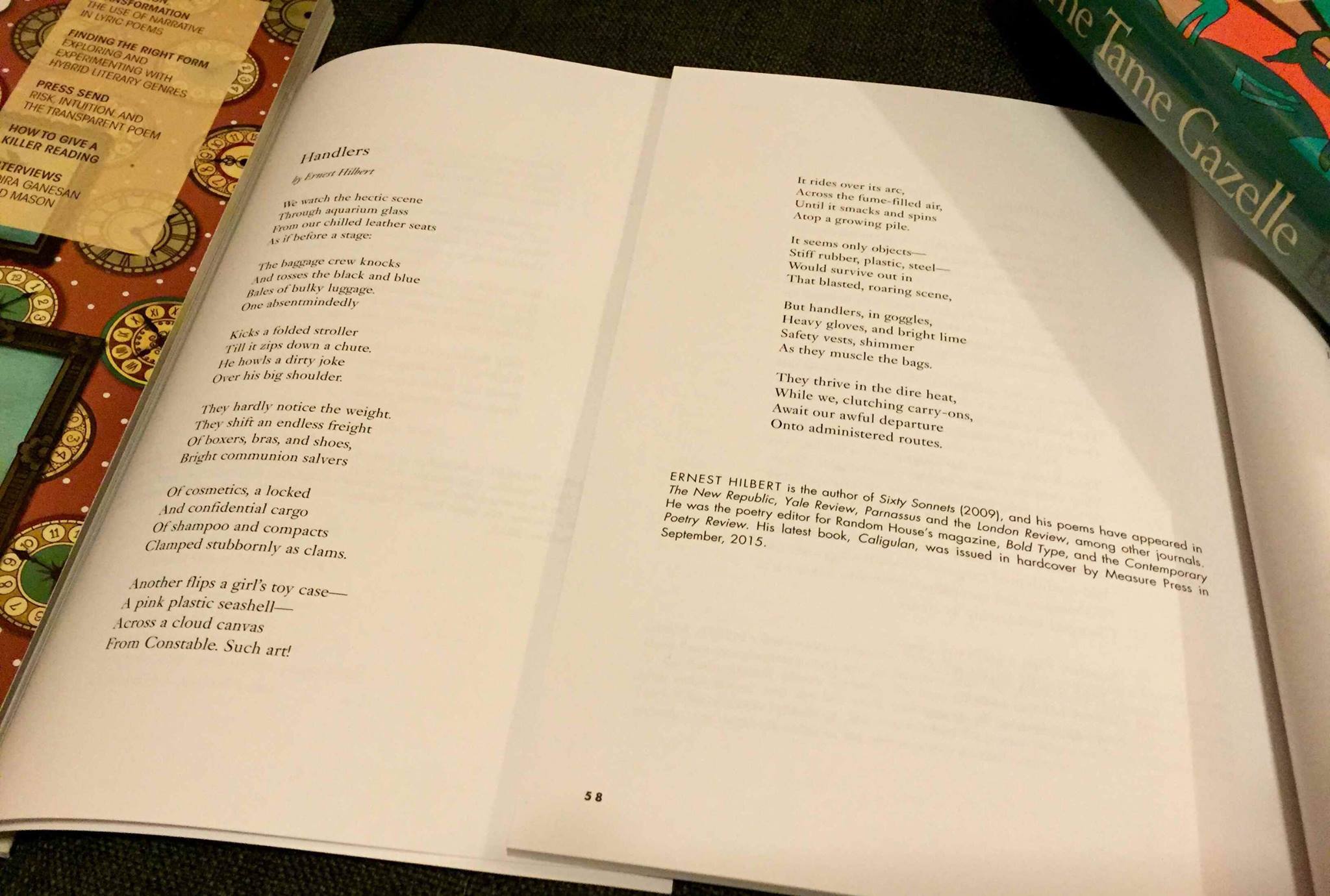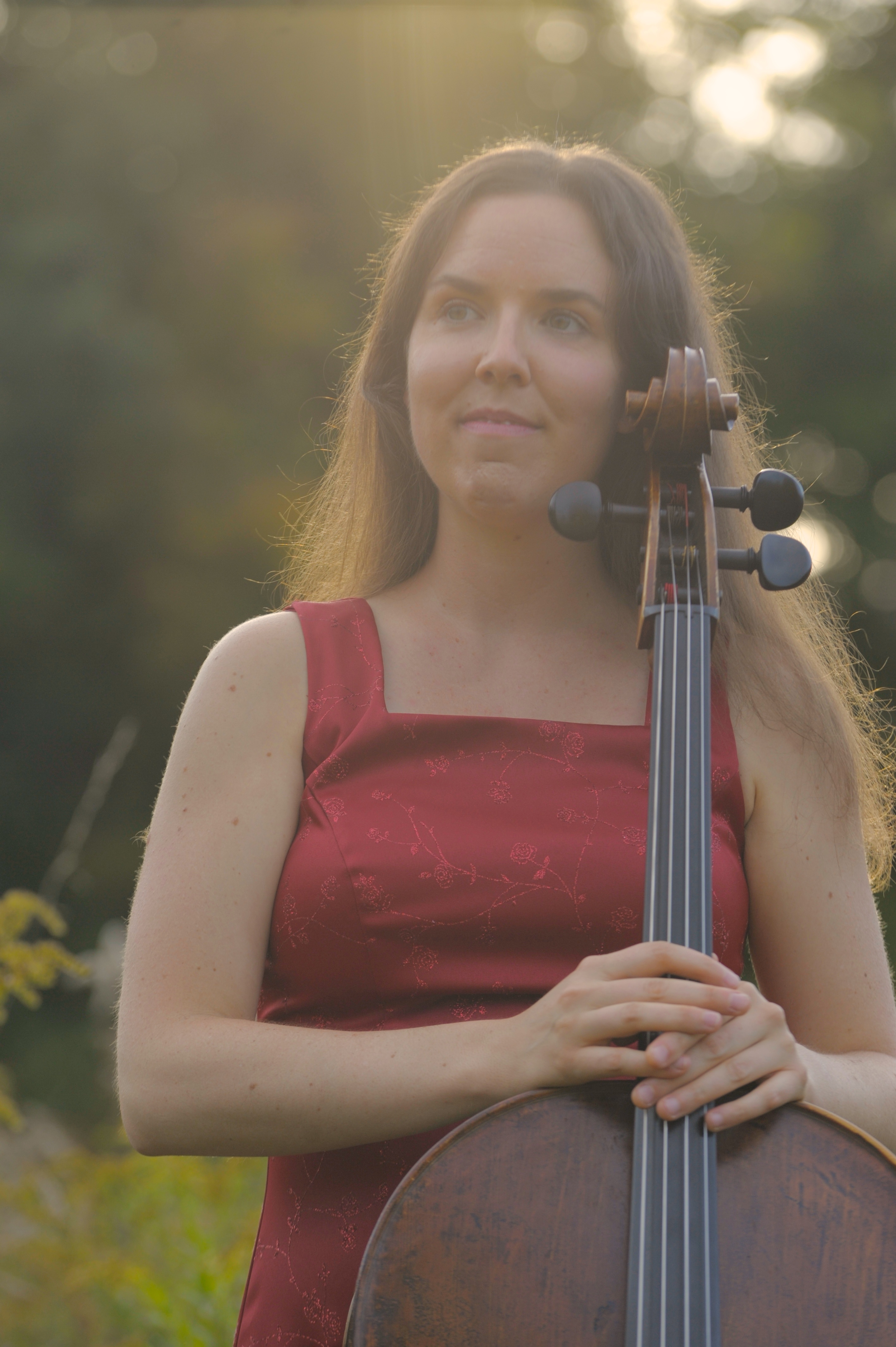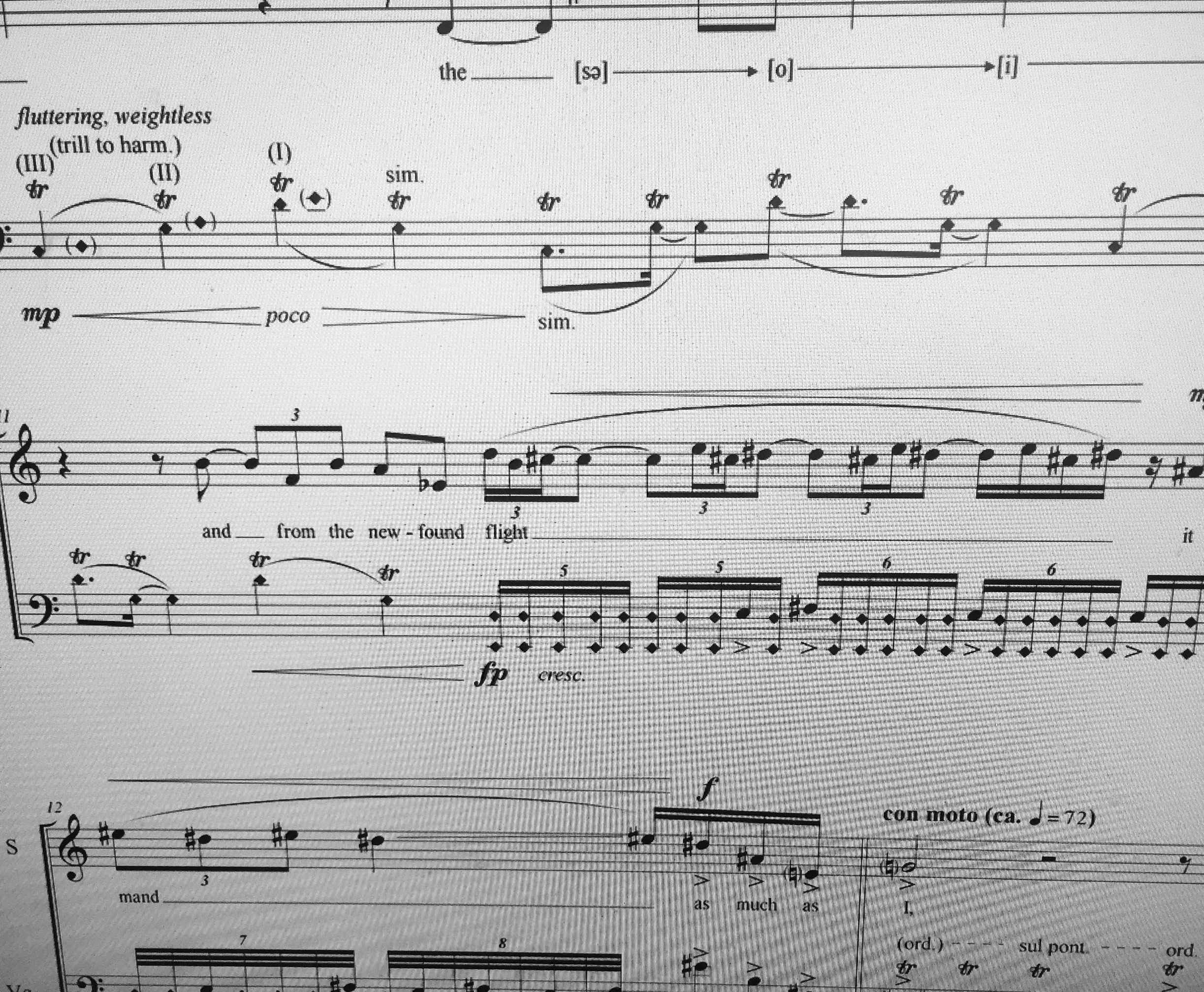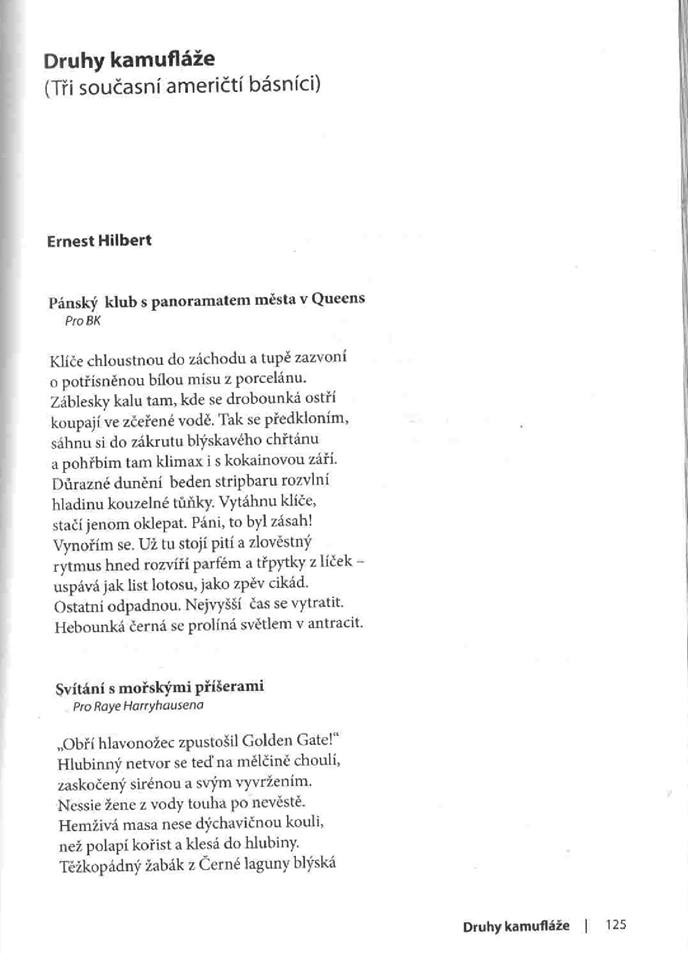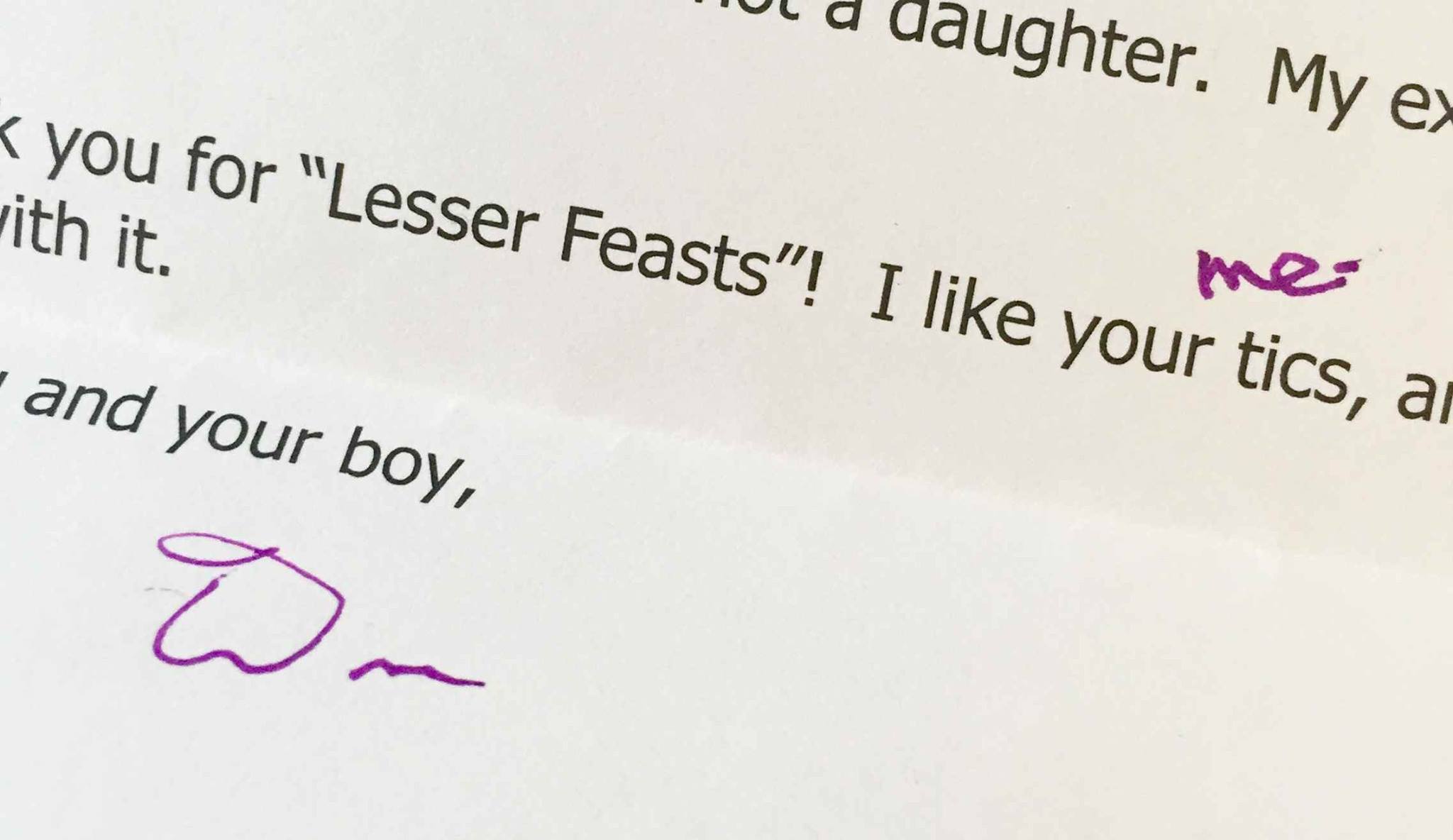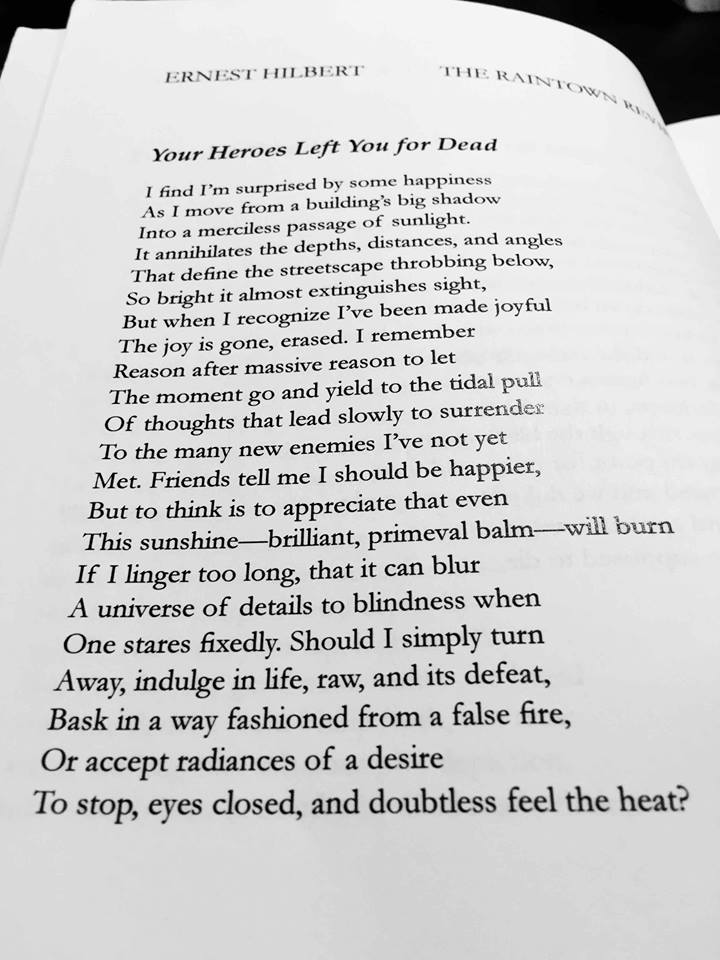A quick update on some of my recent activity in the realms of poetry and opera.
* * *
It is always gratifying to learn that my poem “Domestic Situation”, from my first book Sixty Sonnets
, has been memorized and recited by students for the Poetry Out Loud national recitation contest who have then advanced to the following round on the strength of my poem. This month, a few have used it to advance. From Orcutt Academy High School, we learn that five students “will travel to Santa Barbara to compete in the county competition at the court house. The five top-earning champions include Eden Bailey (“Advice to a Prophet” by Richard Wilbur), Cianna Williams (“Negative” by Kevin Young), Claire Craig (“Ode for the American Dead in Asia” by Thomas McGrath), Nicole Foster (“Cartoon Physics, Part One” by Nick Flynn), and Chandler Alvino (“Domestic Situation” by Ernest Hilbert). Congrats to all. This was the best year yet. We look forward to what happens next as our competitors face off at the county level.”
From Delawareonline.com we learn that “Sanford School’s Jordan McMillan recites ‘Domestic Situation’ by Ernest Hilbert in the Poetry Out Loud Delaware State Finals at the Smyrna Opera House on Tuesday night.”
From Warwick High School in Pennsylvania we learn that “freshman Abigayle (Abbi) Knouse for winning the Regional Poetry Out Loud Recitation Contest! Abbi performed the following three poems: “Domestic Situation” by Ernest Hilbert, “It Couldn’t Be Done” by Edgar Albert Guest, and “I Felt a Funeral, in my Brain, (340)” by Emily Dickinson. Abbi competed with students from Adams, Franklin, Fulton, York, and Lancaster counties. Abbi will represent those counties at the state competition to be held at the State Museum on March 7, 2016. The national finals will be held in Washington, D.C., May 2-4. Prizes will total more than $50,000 in scholarships and school stipends, and the winner will receive at least a $20,000 scholarship.”
The Inyo Council for the Arts in Inyo County, California, announces that “Poetry Out Loud gives students an opportunity to master public speaking skills, build self-confidence, and learn about their literary heritage. Shyann Padilla’s readings of ‘Drowning in Wheat’ by John Kinsella and ‘Domestic Situation’ by Ernest Hilbert, wowed the guest judges, who evaluated student performances on criteria including presence, evidence of understanding, and accuracy. Padilla moves on to compete in Sacramento at the end of this month representing Inyo County in the California State Championship.”
I’m also told that the Sonoma County Poetry Out Loud school winners this year included one who read “Domestic Situation.”
From Burlington High School we hear that Carli Boodakian will read Ernest Hilbert’s “Domestic Situation” as one of the “Poetry Out Loud semifinalists who are preparing to storm the stage tomorrow and impress us with their courage and their poetry.”
Janelle Reyes from Capital Christian High School in Sacramento County, a cheerleader whose favorite poet is Poe, reads “Domestic Situation” by Ernest Hilbert.
Good luck to all of them!
Finally, writer Amy L. Hayden chose “Domestic Situation” as Day 16 of her “30 Days of Poetry” on her website Subjunctive Collapse, including this short introduction: “This is a disturbing poem (a bit), but it’s the last two lines that made me choose it. I’ve thought about what love means to me and how I define it; others barely give it a thought. No one way is right or wrong, though at times (as in the poem below) some ways certainly are foolish (at best).”
* * *
Philadelphia’s “Write Your Block” project posted Ernest Hilbert poem “Kingsessing Avenue” on Tumblr. Thanks to Frank Sherlock and his staff. Thanks also due to the City of Philadelphia Office of Arts, Culture and the Creative Economy.
* * *
My new opera with Stella Sung, The Book Collector, was noted in the Innovations column at the front of the latest issue of Opera America magazine. As librettist, I’m mostly able to kick back at this stage and watch the progress of the production on the project software, as the dozens of other specialists consult, build consensus, have tiffs, make up, and bring this massive spectacle to life. A cathedral collapses at one point. Also, all the stabbing and hallucinations.
The following week, we appeared in the new issue of Symphony magazine.
* * *
My airport poem, “Handlers,” appeared in the Winter 2016 issue of American Arts Quarterly.
* * *
My latest collection Caligulan is reviewed in Synchronized Chaos.
“After his beautifully rendered Sixty Sonnets and the eloquent All of You on the Good Earth comes this richly wrought (if curiously titled—more on that below) new collection. Hilbert is a classicist in the finest sense of the term: he has a firm grip on the formal orders that have dominated the great tradition of Anglophone verse from the skalds of Beowulf and the Pearl Poet to the tight gems of darkness of Thomas Hardy, and he uses them to write poems that ring with very contemporary truths. A skillful artificer of forms of verse that have sometimes gone wanting or are unjustifiably neglected or despised after the earthquakes of modernism, he is afraid of neither tight meter nor demanding rhymes: he proves there is nothing whatsoever anachronistic about well-tooled verse; the rage of authenticity can speak as sharply in a sonnet as in a calligramme.” Read the full review here.
* * *
Cellist Sara Wilkins commissioned composer Christopher LaRosa to write a short piece for cello and soprano using my poem “Kite,” from Caligulan (original appearance in Parnassus) as the text. I’m told they may choose to enlarge it to string quartet and possibly add more songs). It will receive its first performance on March 22nd, 2016 at the Jacobs School of Music at the University of Indiana by cellist Will Rowe and soprano Rachel Mikol, and again in April 2016 at Boston University’s College of Fine Arts School of Music.
Wilkins writes beautifully about her commission in an essay that includes these passages.
In the piece, the soprano is a first-person narrator of the poem and the cello represents the kite. The poem charts the course of a kite that breaks free from the narrator who flies it. Though the fifteen lines of the poem appear in one stanza, Hilbert uses a rhyme scheme that divides the poem into three groups of five lines. However, not all of the lines are exact rhymes. The seventh line contains a consonance, a word that end with the same consonant sound as another (for example, “cloud” and “bird”). With this one exception, the rhyme scheme is A-B-C-C-B; A-D-E-E-D; F-A-F-G-G. There is continuity among the three groups because the first, sixth, and twelfth lines rhyme. In addition to the couplet rhymes, the last word of lines three, four, eight, ten, fourteen, and fifteen are consonances.
LaRosa skillfully distinguishes his writing based on the needs of the text. Hilbert occasionally chooses uncommon turns of phrase which could be misunderstood if they are too melismatic. For example, LaRose rearticulates each syllable of the phrase “as nervy as a bird” to more clearly convey the text’s meaning and the anxiety of the bird (measure 28 and 32). He uses melismas on words that propel the text forward, such as “flight” (measure 11), “swooped” (measure 22-24), and “grew” (measure 26). Recurring motives also enhance the textual meaning. The cello motive in measure two foreshadows the soprano’s melismas on the words “flight” (measure 11) and “swooped” (measures 22-24), creating musical imagery.
LaRosa uses harmonic trills in the cello to evoke the delicate fluttering of the kite. The first trill sits atop a sustained F-sharp, perhaps representing the rope than keeps the kite earthbound (measure 3). As the piece and poem progress, the kite breaks free from the tether and drops the drone. When the kite gains power (“strained the armature”), the trills become more aggressive with fortepiano attacks and sul ponticello coloration (measure 15). The strain is evident in the vocal line, where the soprano’s instruction is “timbre becoming rougher.” The cello reaches its loudest dynamic of fortissimo in measure 35, one measure after the soprano’s highest note. After this climactic event, the cello drone reappears, this time on a G-natural. The cello adds flickering notes interspersed with harmonic trills (measure 36) above the G pedal. This coincides with the narrator’s line “though still tethered.” The narrator finally releases the kite with the word “unfathered” and the cello rapidly ascends to the top of its range and descrescendos to niente.
The first and last vocal sounds of “Kite” are a blending of vowel sounds, creating symmetry across the piece (mm. 1-2 and mm. 43-44). The soprano is instructed to gradually change among the indicated vowels in the given duration. In the opening measures, the soprano alternates between F and G as she changes vowels, while the ending vowels are all on G-sharp. The same technique also appears in measure 10 on a C-sharp. Perhaps this morphing of open sounds represents the wind. The effect works particularly well at the beginning since the soprano and cello are in unison on F4.
The text appears in order throughout the piece, though many fragments are repeated. The repetition is usually accompanied by a development of the musical idea. “I ran my kite” appears five times with rhythmic and pitch variations until the cello lands on a sforzando semitone (measure 7). Similarly, “toward the sky” is repeated three times, each time climbing higher in register (measure 14). As the music nears the climax, the narrator begins repeating lines out of sequence, “a bird of prey, as nervy as a bird now spun away.” The narrator’s anxiety is mirrored in the cello’s rapid sextuplets, punctuated with fortepianos. The pinnacle is reached when the text “too strong” is inserted after “unbearable to possess” in measure 34. The dramatic minor ninth leaps in the soprano finally land on her highest note in the piece, A5.
The remaining text resigns itself to the kite’s newfound freedom. The tempo slows and the soprano drops down near the bottom of her range (C-sharp4). The last word of text, “unfathered,” is demarcated with rests for emphasis. After this word is sung the soprano starts to repeat it, but after the second syllable the “a” sound blends into other vowel sounds. The soprano’s vowels fade away as the cello’s rapid sextuplets ascend through the accelerando, until they also evaporate.
* * *
I was surprised to find that several of my poems have been translated into Czech back in 2010 and appeared alongside those of Alicia Stallings in a Prague magazine called Souvislosti. The poems were “City-Scape Gentlemen’s Club, Queens,” “Sunrise wih Sea Monsters,” “Rakewell in TriBeCa,” “Dusk in a Crowded Train Compartment, Regretting My Life,” all of which appear in my 2013 book All of You on the Good Earth.
On February 12th, I read from my latest poetry collection, Caligulan, on Sirius XM radio as part of a program about rare books. I am told by the executive director that the show has an estimated two and a half million listeners worldwide.
* * *
My latest round of correspondence with Donald Hall includes a fantastic typo, which he corrects by hand in his trademark purple ink. When referring to the “metrics” in my unpublished poem “The Lesser Feasts,” he types instead “my tics,” which I prefer.
* * *
My longer poem “Island” appears with a nod to classic pulp horror stories (and Greek myth) in the new issue of Per Contra.
* * *
The Winter 2016 issue of The Raintown Review contains two of my poems, “Your Heroes Left You for Dead” and “After We Escaped the Tombs of the Blind Dead.”
* * *
The Winter 2016 issue of the venerable Sewanee Review contains three of Hilbert’s sonnets, originally slated for the book Caligulan but removed in order to appear in the Sewanee Review after the books’s publication date, though also because they lack the anger and energy of the other poems in the collection.

